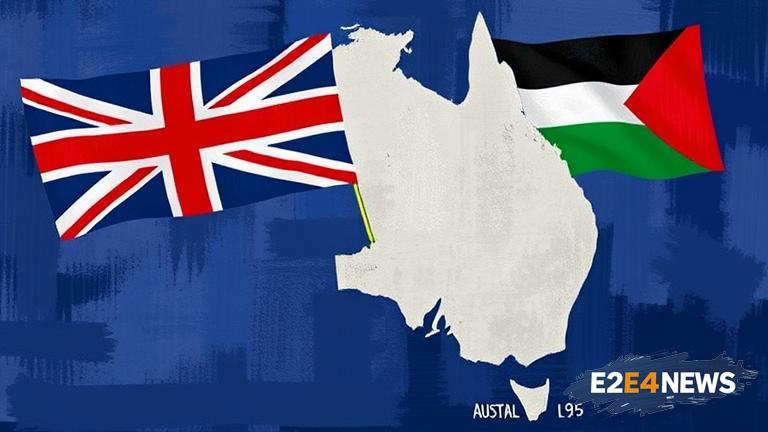The Australian government has been facing increasing pressure to recognize Palestine as a sovereign state, with many arguing that it’s a matter of when, not if, the country will officially acknowledge Palestine’s statehood. The topic has been a subject of debate for many years, with various Australian governments taking different approaches to the issue. However, in recent years, there has been a growing momentum towards recognition, with many experts and politicians believing that it’s only a matter of time before Australia joins the growing list of countries that have recognized Palestine. One of the main arguments in favor of recognition is that it would help to promote peace and stability in the region, by providing a clear and unequivocal statement of support for the Palestinian people’s right to self-determination. Additionally, recognition would also help to strengthen Australia’s relationships with other countries in the region, many of which have already recognized Palestine. Despite the growing momentum towards recognition, there are still many challenges and obstacles that need to be overcome, including the strong opposition from some quarters, particularly from those who are concerned about the potential impact on Australia’s relationship with Israel. However, many experts believe that these concerns are overstated, and that recognition would not necessarily damage Australia’s relationship with Israel. In fact, some argue that recognition could actually help to improve relations between Australia and Israel, by providing a clear and unequivocal statement of support for a two-state solution. The Australian Labor Party has already announced its support for recognition, and it’s likely that the party will make it a key part of its foreign policy platform in the next election. The Liberal Party, on the other hand, has been more cautious in its approach, with some politicians expressing concerns about the potential impact on Australia’s relationship with Israel. However, even within the Liberal Party, there are many who believe that recognition is inevitable, and that it’s only a matter of time before the party comes on board. The Greens and other minor parties have also been strong supporters of recognition, and have been pushing for it to be made a priority. The recognition of Palestine is not just a matter of foreign policy, but also has significant domestic implications, particularly for the Australian Palestinian community. Many members of this community have been campaigning for recognition for many years, and see it as a key step towards achieving justice and equality for the Palestinian people. The Australian government has a long history of supporting the Palestinian people, dating back to the 1970s, when the country first began to provide humanitarian aid to the Palestinian territories. However, despite this support, the government has been slow to recognize Palestine as a sovereign state, with many arguing that this is due to the strong influence of the Israeli lobby in Australian politics. In recent years, however, there has been a growing awareness of the need for recognition, with many Australians beginning to see the issue as a matter of basic human rights and justice. The recognition of Palestine would also have significant implications for Australia’s role in the region, and would likely lead to a strengthening of the country’s relationships with other countries in the Middle East. It would also provide a significant boost to the Palestinian economy, which has been struggling for many years due to the Israeli occupation. The Israeli government has been strongly opposed to recognition, and has been lobbying heavily against it. However, many experts believe that this opposition is unlikely to be successful, and that recognition is inevitable. In fact, some argue that the Israeli government’s opposition to recognition is actually counterproductive, and is likely to strengthen the case for recognition in the eyes of many Australians. The recognition of Palestine is a complex and multifaceted issue, and there are many different perspectives and opinions on the matter. However, despite the challenges and obstacles, many experts believe that recognition is inevitable, and that it’s only a matter of time before Australia joins the growing list of countries that have recognized Palestine. The Australian government has a responsibility to promote peace and stability in the region, and to support the basic human rights and dignity of the Palestinian people. Recognition of Palestine is a key step towards achieving these goals, and it’s likely that the government will eventually come to see it as a necessary and inevitable step. The international community has a critical role to play in promoting peace and stability in the region, and recognition of Palestine is a key part of this effort. Many countries have already recognized Palestine, and it’s likely that many more will follow in the coming years. The recognition of Palestine is not just a matter of foreign policy, but also has significant implications for domestic politics and social justice. It’s an issue that has the potential to unite people across different political and social divides, and to promote a greater understanding and awareness of the need for justice and equality in the region.





